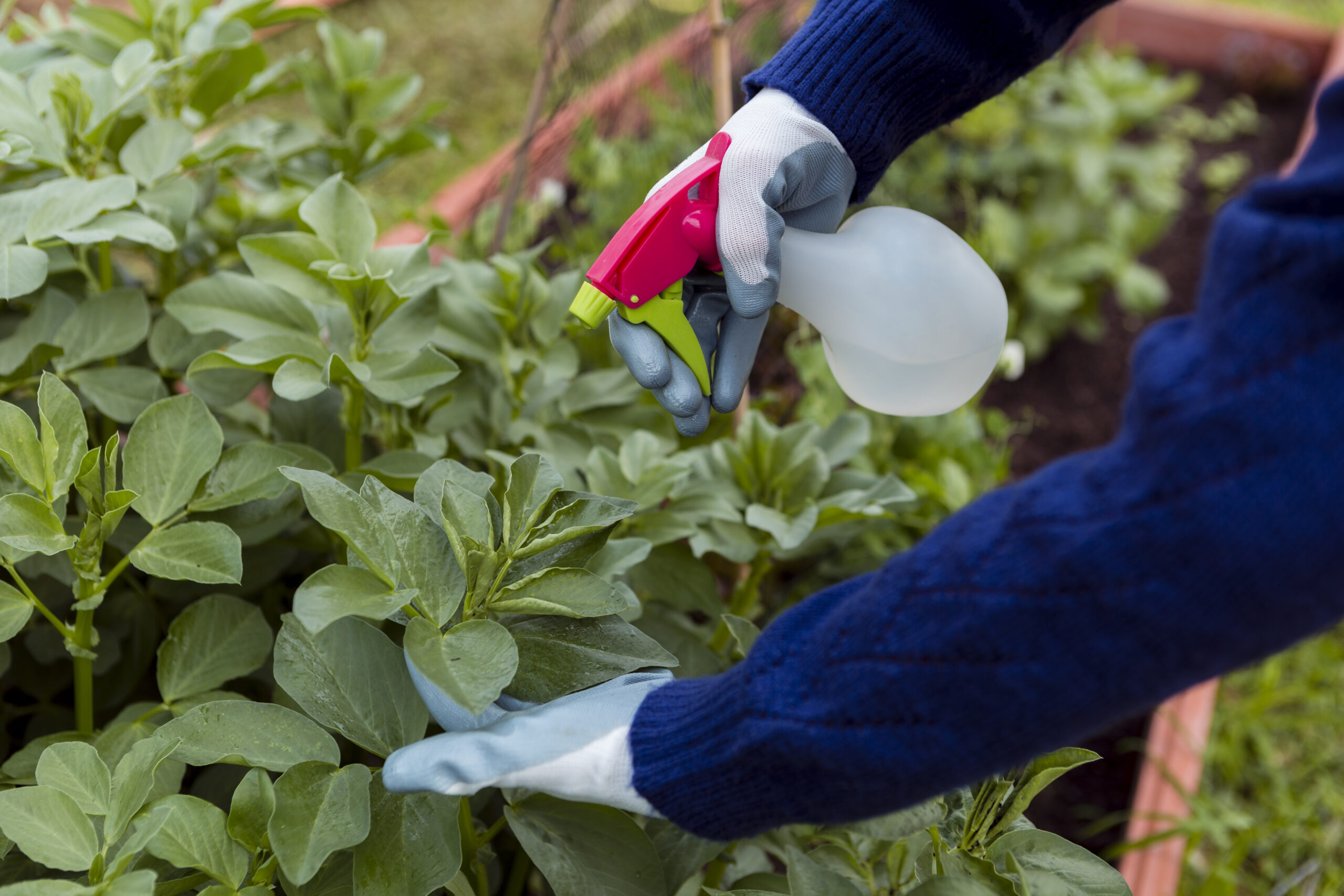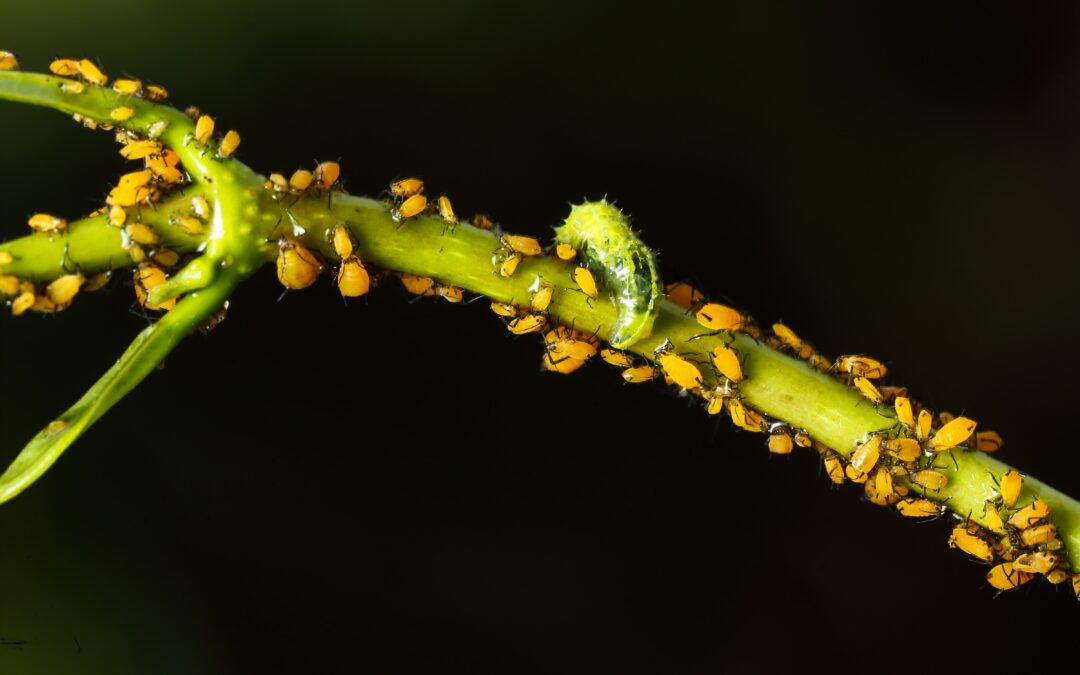A flourishing garden is a source of joy, but nothing is more frustrating than watching pests destroy your plants. Whether it’s aphids sucking sap from tender leaves or caterpillars feasting on your greens, pest control is essential to maintaining a healthy garden. Instead of resorting to harsh chemicals, you can adopt eco-friendly and effective methods to keep your Garden pest control in 2025. Here’s how:
1. Identify the Garden Pests
The first step in pest control is identifying the troublemakers. Look for signs such as chewed leaves, yellowing foliage, or tiny eggs on the underside of leaves. Common garden pests include:
Aphids
Small, soft-bodied insects that thrive on plant sap.
Signs of Aphid Infestation
- Curling or yellowing leaves
- Sticky honeydew residue
- Ants crawling on plants
Caterpillars
Larvae that munch on leaves.
Preventing Caterpillar Damage
- Handpick caterpillars in the early morning
- Introduce birds that feed on caterpillars
- Apply neem oil spray
Whiteflies
Tiny, white flying insects that cause plant wilting.
Controlling Whiteflies
- Use yellow sticky traps
- Spray plants with insecticidal soap
- Introduce natural predators like ladybugs
2. Encourage Natural Predators
Nature maintains the balance of the ecosystem in its way. Introducing beneficial insects and birds can help control pests naturally. Some of the best allies for your garden include:
Ladybugs
These little beetles feast on aphids and other soft-bodied insects.
How to Attract Ladybugs?
- Plant dill, fennel, and marigolds
- Avoid chemical pesticides
- Provide a shallow water source
Lacewings
Their larvae consume aphids, mites, and caterpillars.
Benefits of Lacewings in Gardening
- Help control multiple pests
- Do not harm plants
- Effective in greenhouses and outdoor gardens
Birds
Attract them by placing bird feeders or birdbaths.
Best Birds for Pest Control
- Sparrows – Eat caterpillars and beetles
- Bluebirds – Consume grasshoppers and weevils
- Wrens – Feed on insect larvae
3. Use Organic Pest Control Methods
Instead of chemical pesticides, try these organic alternatives:
Neem Oil
A natural insecticide that disrupts pests’ life cycles.
How to Apply Neem Oil?
- Mix with water and mild soap
- Spray in the evening or early morning
- Apply once a week for best results
Soap Spray
A mild soap and water mixture can suffocate soft-bodied insects.
Making a DIY Soap Spray
- Combine 1 tablespoon of dish soap with 1 liter of water.
- Spray directly on affected leaves
- Avoid spraying in direct sunlight

4. Practice Companion Planting
Certain plants act as natural pest deterrents when grown together. Some effective combinations include:
Marigolds & Tomatoes
Marigolds repel nematodes and aphids.
Why Marigolds Work?
- Their strong scent masks attractant chemicals
- Roots produce compounds toxic to nematodes
Basil & Peppers
Basil deters mosquitoes and whiteflies.
Companion Planting Benefits
- Improves plant growth
- Reduces the need for chemical pesticides
5. Keep Your Garden Clean
A messy garden attracts pests. Regular maintenance can prevent infestations:
Remove dead leaves and weeds
Pests often hide in decaying plant matter.
Water plants in the morning
Avoid excess moisture at night, which attracts pests.
Best Practices for Watering
- Use a drip irrigation system
- Water at the base of plants to prevent fungal growth
6. Set Up Physical Barriers
Simple barriers can prevent pests from attacking your plants:
Netting and Row Covers
Protect plants from flying insects and birds.
Benefits of Using Netting
- Prevents pest infestations
- Allows air and sunlight to reach plants
Copper Tape
Deters slugs and snails.
How Copper Tape Works
- Creates a mild electric shock
- Acts as a long-term pest deterrent
7. Monitor and Take Action Early
Regular garden inspections will help you spot pest problems before they get out of control. Act quickly by removing pests manually, applying organic sprays, or encouraging natural predators.
Early Warning Signs of Pest Infestations
- Wilting or discolored leaves
- Holes in leaves or stems
- Sticky or sooty mold on plants
Conclusion for Garden pest control
Garden pests may be persistent, but with the right approach, you can control them without harming the environment. By identifying pests, attracting beneficial insects, using organic methods, and keeping your garden clean, you’ll create a thriving and pest-resistant outdoor space.
Looking for professional pest control solutions?
OGS Facility Management provides expert pest control services to keep your home and garden pest-free.
Why Choose OGS Facility Management?
- Experienced pest control specialists
- Safe and eco-friendly pest management
- Customized solutions for home and garden

